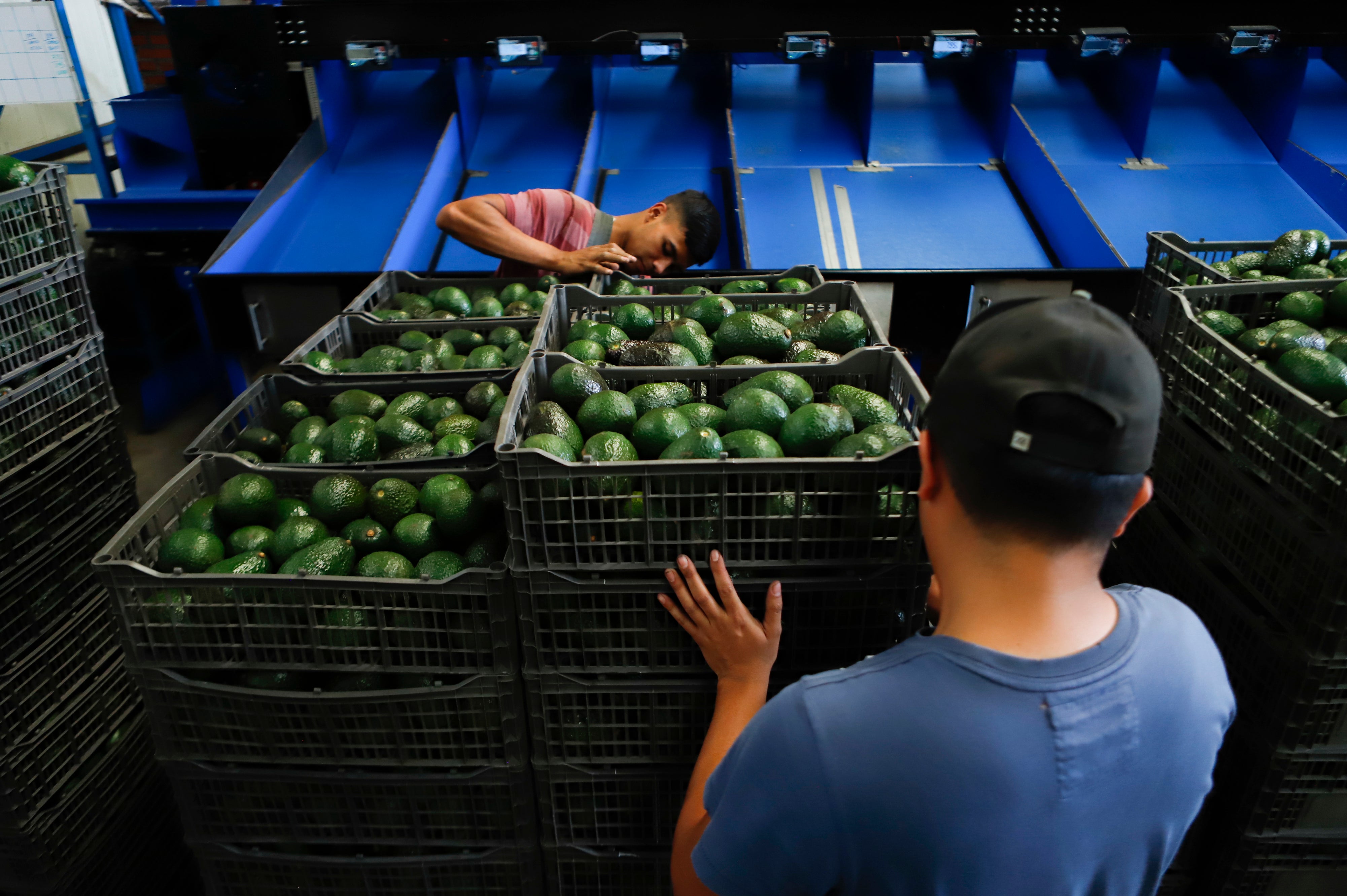Experts see avocado price rise, damage to Mexican producers
Experts say you may be paying more for your avocado toast in the short term, and distributors may be looking beyond Mexico to guard against future supply disruptions

Your support helps us to tell the story
From reproductive rights to climate change to Big Tech, The Independent is on the ground when the story is developing. Whether it's investigating the financials of Elon Musk's pro-Trump PAC or producing our latest documentary, 'The A Word', which shines a light on the American women fighting for reproductive rights, we know how important it is to parse out the facts from the messaging.
At such a critical moment in US history, we need reporters on the ground. Your donation allows us to keep sending journalists to speak to both sides of the story.
The Independent is trusted by Americans across the entire political spectrum. And unlike many other quality news outlets, we choose not to lock Americans out of our reporting and analysis with paywalls. We believe quality journalism should be available to everyone, paid for by those who can afford it.
Your support makes all the difference.Experts say you may be paying more for your avocado toast in the short term, and the effects of the U.S. temporary ban on imports of the fruit is already being felt by avocado pickers in Mexico.
Mexico is negotiating security guarantees for U.S. inspectors who certify Mexican avocados for export. The inspections were halted last week after one of the U.S. inspectors was threatened in the western state of Michaoacan, where growers are routinely subject to extortion by drug cartels.
Avocado pickers stood on a roadside this week outside the city of Uruapan, Michoacan, asking for donations after they lost their work. Holding up signs saying “Voluntary donations” and “We make our living off avocado picking,” they waited for motorists to drop spare change into buckets they held.
“Since last Wednesday we haven't picked anything,” said one of the workers, who refused to give his name because of the widespread violence in the state. “In the meantime, you die of hunger.”
While avocados that were already inspected can still be shipped north, there were signs Thursday that supplies will tighten and companies that import avocados may have to look beyond Mexico, which currently supplies about 80% of U.S. imports of the fruit.
“I think it is going to increase prices in the United States, not now because there is still avocado in transit, but I anticipate that in a week or 10 days we will have a price spike,” said Miguel Gómez, professor of applied economics and management in the Cornell SC Johnson College of Business.
Jack Hartung, the chief financial officer of the Chipotle restaurant chain, said in a statement that "we are working closely with our suppliers to navigate through this challenge. Our sourcing partners currently have several weeks of inventory available, so we’ll continue to closely monitor the situation and adjust our plans accordingly.”
Gómez expects any shortage would be short-lived.
“I think that the the disruption in the market will be very short now because (avocado from) Peru is going to come in late March, early April, and I’m sure they are going to do everything it takes to start shipping avocados earlier and perhaps in mid-March,” Gómez said.
Peru, Colombia and Chile already ship avocados to the United States, but in quantities that are only a tiny fraction of Mexico's production. That may change.
“I was talking with a few buyers of avocado domestically, and on toward the future. They they know they need to diversify suppliers,” said Gómez. "The issue is that they realized that it would be very risky to depend on a single source.
The avocado growers association and Michoacan state officials have been holding meetings this week with U.S. officials to work out security guarantees for U.S. inspectors.
“We are working to restore avocado exports as soon as possible,” wrote Michoacan Gov. Alfredo Ramírez Bedolla.
But in the meantime, avocado growers in Michoacan have been left in uncertainty; avocados can be left on the trees for a certain amount of time, but already-harvested fruit has to be shipped quickly.
“We have the uncertainty; if it (the export production) is going to go into the domestic market, all into Mexico, prices will drop,” said avocado buyer and distributor José Manuel Garcia Tovar. “So we are in a situation in which growers may or may not want to harvest.”
It also remains to be seen how U.S. consumers will react if they start seeing prices rise. While there is concern about the deforestation and violence that have resulted from the avocado boom in Michoacan, the fruit has become a staple in the United States, where per capita consumption of avocados tripled since 2001 to 8 pounds per person in 2018.
“The moment you hit somebody’s avocado toast at brunch, that’s like hitting the very heart of many American families that rely on that Sunday brunch, right? So all of a sudden, we’re getting kind of questions as to ... where are the priorities here?” said Desirée LeClercq, a professor of employment law at Cornell’s School of Industrial and Labor Relations.
That raises the issue of whether Americans would be willing to pay more for avocados not associated with violence, drug cartels or deforestation.
“It’s requiring Americans to really ask themselves, do they want to pay more to have a quality product or do they want to kind of look the other way and be able to slice their toast accordingly?” said LeClercq. “And I think that consumers are becoming more educated on how these products are made. But whether or not that’s going to trickle into consumer behavior, I think has yet to be seen.”